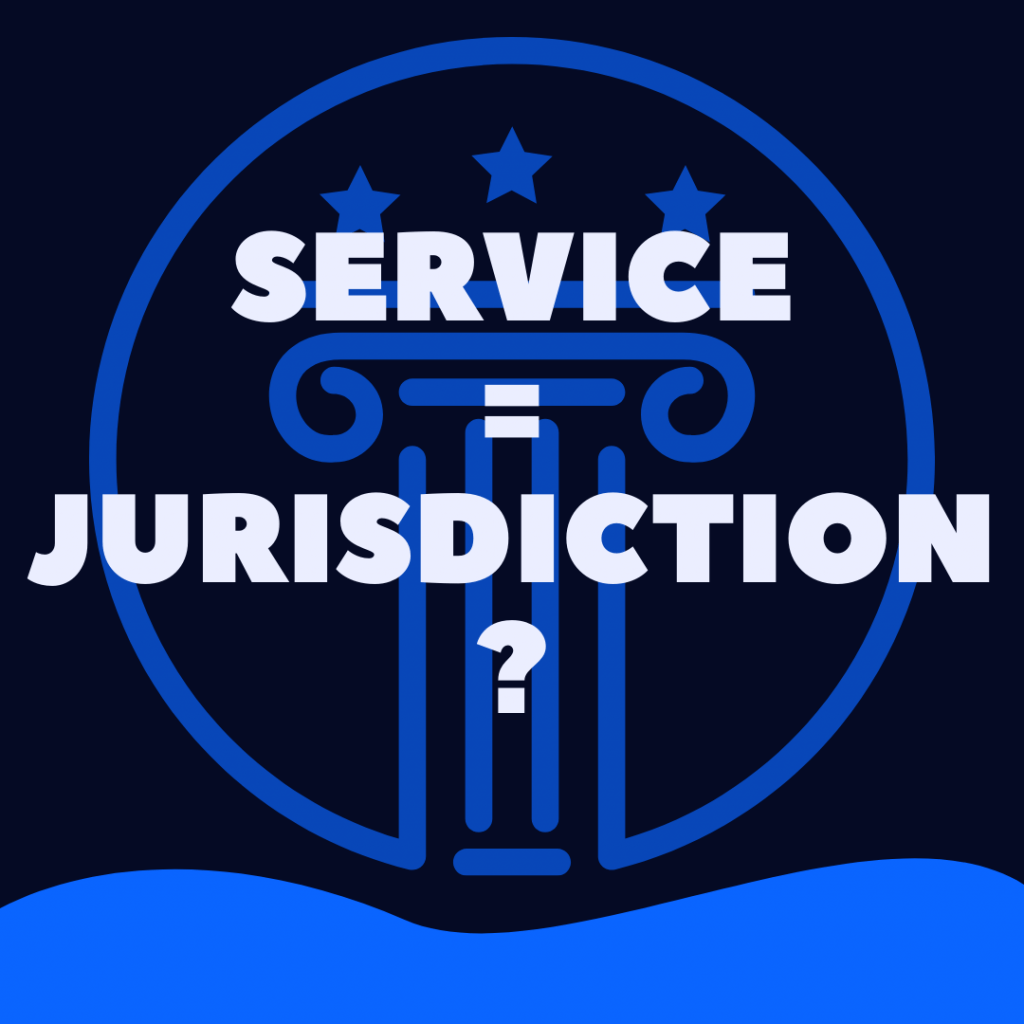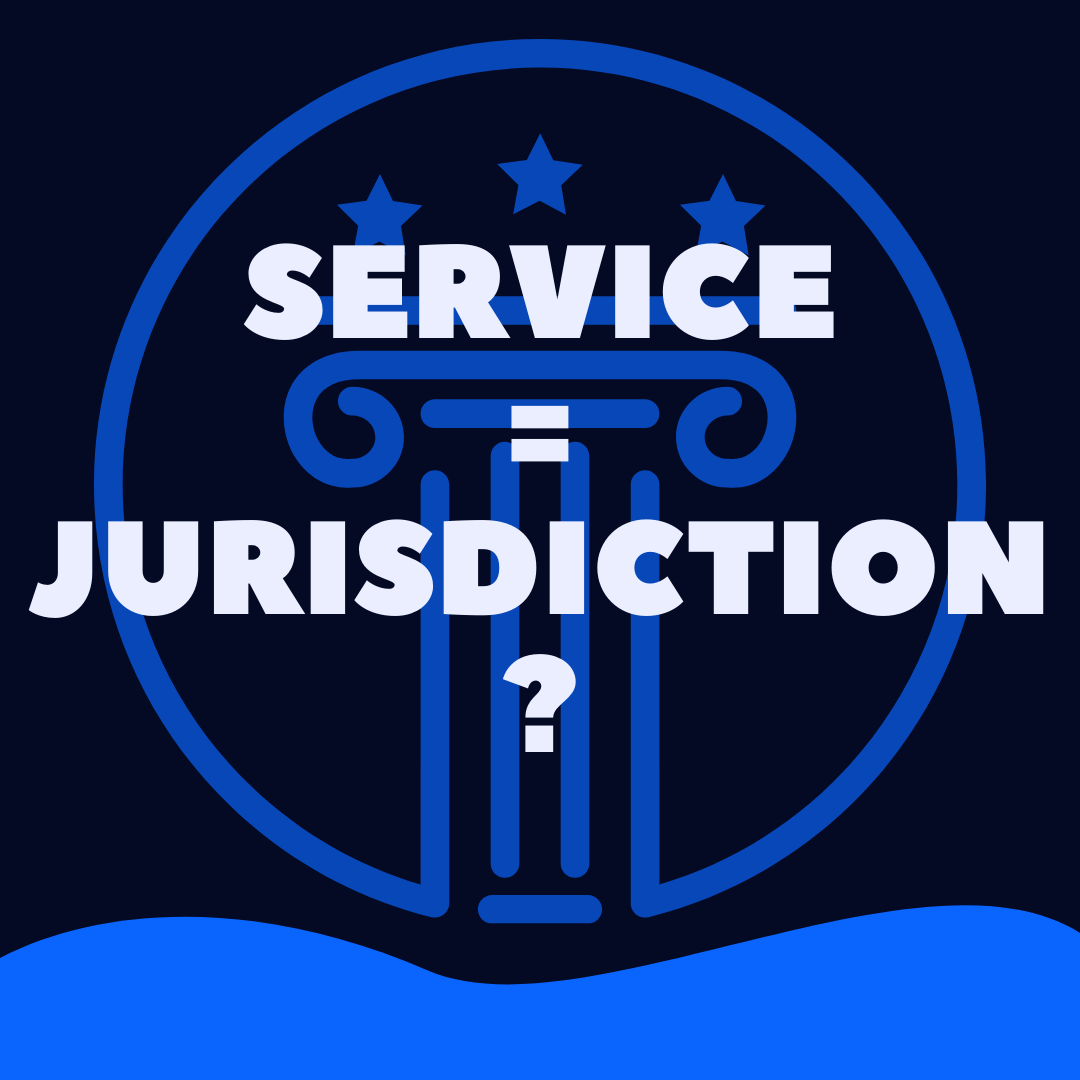Answer: No, service of process alone does not establish personal jurisdiction over an individual.
It takes just a little more than that.
Let us explain.
Does Service Of Process Establish Personal Jurisdiction? (EXPLAINED)
Disclaimer
The contents of this web page are for informational purposes only, and nothing you read is intended to be legal advice. Please review our disclaimer about law/legal-related information on this website before taking action based upon anything you read or see.
What Is Personal Jurisdiction?
Personal jurisdiction is a legal term.
It refers to the ability of a particular court in a particular place to exercise its courtly power over a defendant or property.
There are three kinds of personal jurisdiction: in personam, in ren, and quasi in rem.
We look to state statutes and the United States Constitution for the rules and guidelines about personal jurisdiction, through there is some case law that molds those statutes into something more useful.
What is Service of Process?
Service of process is another legal term.
This is a step in the initiation of the legal case where the named defendant (or defendants) is officially notified of the pendency and substance of the case.
Service of process is usually accomplished by hand-delivering a copy of the complaint filed in the case along with a copy of the summons.
If the defendant is a business or agency, service usually requires delivery to a representative of the company along with mailing a copy to the address registered with the state.
The rules for service are similar, though they can vary a little in the specifics of details (especially when it comes to alternate service and substitute service).
Some states allow for mailing of the summons and complaint to the defendant.
Why Doesn’t Service of Process Alone Establish Personal Jurisdiction?
Personal jurisdiction over a defendant is limited by both state statutes and the United States Constitution.
A plaintiff can cause a defendant to be served anywhere in the world.
This is even the case if the defendant has never set foot in the state or even the country where the facts giving rise to the lawsuit occurred.
Most state statutes grant the courts power over a defendant in the following scenarios:
- The defendant is served with process while present in the state (even if he lives or works elsewhere, and is only present in the state for the briefest amount of time);
- The defendant’s residence (domicile) is in the state (even if he is served elsewhere);
- The defendant agrees to personal jurisdiction in the state; and
- the defendant has committed acts bringing him within the state’s “long arm” statutes.
Let’s say that the plaintiff files her case in the state of Wisconsin.
The defendant lives in Florida.
The plaintiff serves the defendant with a copy of the summons and complaint in Florida.
If the defendant does not consent to personal jurisdiction in Wisconsin, then the plaintiff will have to be able to prove that the defendant had committed acts sufficient to bring him within the state’s long arm statutes.
Long Arm Statutes
Long arm statutes can be unique to the state you are in.
But generally, they can apply if the nonresident (someone who lives outside the state) has engaged in certain contacts within the state.
For example, if a defendant transacts business within the state (like selling goods or services to residents of the state), caused damage because the defendant owned some physical item in the state, had insurance within the state, owned real property in the state, or was married to someone within the state, the long arm statutes might confer personal jurisdiction upon him.
Because establishing personal jurisdiction over a person requires both service of the necessary documents and meeting the requirements/limitations for personal jurisdiction set by statute and law, service ofprocess alone cannot confer personal jurisdiction over a defendant.
What Happens If The Plaintiff Serves The Defendant and Defendant Objects On The Grounds Of Lack of Personal Jurisdiction?
The rules of every jurisdiction allow for the defendant to appear on limited grounds to object to personal jurisdiction.
Some might argue that filing any kind of response in the court where the case was filed is an agreement to personal jurisdiction, because the defendant is seeking relief from that court.
The statutes are clear that a defendant can file a limited appearance to contest personal jurisdiction, and the defendant does not consent to personal jurisdiction over the matter as a whole.
However, if the defendant were to file an answer/response without first objecting to personal jurisdiction, he has probably waived his objections and it is concluded that he has consented to personal jurisdiction in that forum.
What If The Out Of State Defendant Agrees to Accept Service Instead Of Requiring Service By A Process Server?
Accepting service of process (or even signing an acceptance of service pleading) does not confer personal jurisdiction over a defendant.
Nor does this acceptance of service waive the defendant’s potential objections to personal jurisdiction or other potential affirmative defenses to the initial complaint.
Wrap Up
Want to learn more about the courts and our justice system?
Browse our free legal library guides for more information.
You might also like:
- Can a Plaintiff File a Motion to Dismiss?
- Can a Plaintiff Serve a Defendant?
- Can a Plaintiff He Found Guilty In a Case?
- Can You Be Served Over The Phone?
- Do All Civil Cases Go To Trial?



